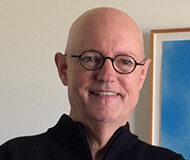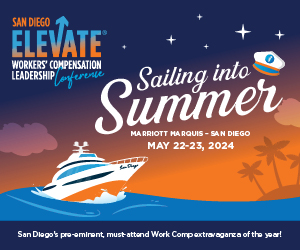Young: The Tesla Plant and Worker Safety
Friday, August 4, 2017 | 0
About a year and a half ago I toured the Tesla factory in Fremont.
What an eye-opener.

Julius Young
Our office has represented autoworkers at that plant for decades. That means going back to the old General Motors operation there. After that, we handled workers at New United Motor (NUMMI), the joint venture between GM and Toyota. And now Boxer & Gerson represents some injured workers at Tesla.
However, I was there at the Tesla factory on another mission: to accompany my wife as she took delivery of a new Tesla Model S that she had ordered. The company offers new owners a factory tour. A small train of carts winds through the factory as a narrator explains the different production steps.
There were robots large and small. I noticed that some were manufactured by FANUC. Some years before, I’d been in Japan and marveled at the mysterious campus of yellow buildings near the foot of Mt. Fuji. That was FANUC.
My wife and I drove home with the Model S, and it has been a great vehicle. So I’m not a Tesla basher.
It has been amusing this year to see its stock climb to the point that Tesla market value exceeded that of Ford. That’s for a company that delivered around 76,000 vehicles in 2017 compared to more than 6 million for Ford. Maybe that’s a reward for vision and promise. Or maybe an indication of froth in the investment markets.
But whatever.
Tesla has been building its Nevada gigafactory, but the Fremont plant remains its production facility. That may be putting a lot of eggs in one basket in the event of an earthquake, serious accidents or work stoppages. Clearly the company is operating at full capacity, with a third shift added. And there have been many worker complaints about excessive overtime.
And recently the mass-market, lower-priced Model 3 was unveiled.
Perhaps the weak link in this success story is worker satisfaction and safety. The United Auto Workers is attempting to organize the employees, and it is clear there are some who want more of a voice.
This year Tesla has come under the microscope for its safety record. A report by Worksafe documented that the company, despite the use of robotics, has a high injury rate in comparison to other auto manufacturers. You can find the full Worksafe report here.
Specifically, the Worksafe report claims that:
- Tesla’s total recordable incidence rate (TRIR) in 2015 was 31% higher than the industrywide incident rate (8.8 injuries per 100 workers, compared to 6.7 for the automobile manufacturing industry as a whole). The TRIR represents the average number of nonfatal injuries per 100 full-time workers. This means that workers at the company’s Fremont plant were injured more than the average automobile industry workers.
- Tesla’s total injury rate for 2016 was 8.1 per 100 workers. While official industrywide statistics are not yet available for 2016, based on the previous three years of industry data it is very reasonable to expect that the company’s rates will again surpass the industrywide incident rate (“industry rate”), which has stayed relatively constant over time.
- The rate of serious injuries at Tesla’s Fremont plant — those that result in days away from work, restricted duty or job transfer — was approximately double the industry rate for 2015. This measurement is known as the DART rate (days away, restrictions and transfers). The DART rate at Tesla in 2015 was 7.9, compared to the industry average of 3.9. Tesla’s DART rate for 2016 was 7.3, which, based on the previous eight years of industry data, is reasonably expected to again be higher than the industry rate,
In May 2017 the Tesla head of human resources resigned, reported by some in the media as a result of allegations of poor working conditions and harassment.
Tesla has noted that many of the injuries are ergonomic, and Elon Musk has issued statements that the company is committed to safety.
It’s a story that will stay under the microscope.
Can the company produce more cars out of the Fremont factory, and what is the human cost?
Julius Young is a claimants' attorney for the Boxer & Gerson law firm in Oakland. This column was reprinted with his permission from his blog, www.workerscompzone.com.




Comments